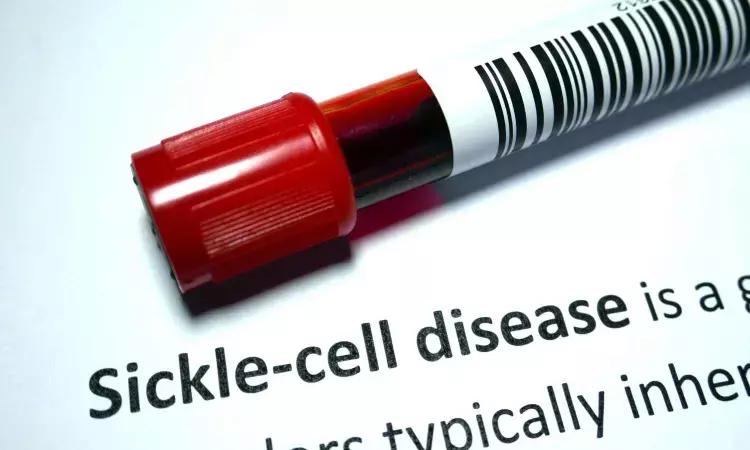- Home
- Medical news & Guidelines
- Anesthesiology
- Cardiology and CTVS
- Critical Care
- Dentistry
- Dermatology
- Diabetes and Endocrinology
- ENT
- Gastroenterology
- Medicine
- Nephrology
- Neurology
- Obstretics-Gynaecology
- Oncology
- Ophthalmology
- Orthopaedics
- Pediatrics-Neonatology
- Psychiatry
- Pulmonology
- Radiology
- Surgery
- Urology
- Laboratory Medicine
- Diet
- Nursing
- Paramedical
- Physiotherapy
- Health news
- Fact Check
- Bone Health Fact Check
- Brain Health Fact Check
- Cancer Related Fact Check
- Child Care Fact Check
- Dental and oral health fact check
- Diabetes and metabolic health fact check
- Diet and Nutrition Fact Check
- Eye and ENT Care Fact Check
- Fitness fact check
- Gut health fact check
- Heart health fact check
- Kidney health fact check
- Medical education fact check
- Men's health fact check
- Respiratory fact check
- Skin and hair care fact check
- Vaccine and Immunization fact check
- Women's health fact check
- AYUSH
- State News
- Andaman and Nicobar Islands
- Andhra Pradesh
- Arunachal Pradesh
- Assam
- Bihar
- Chandigarh
- Chattisgarh
- Dadra and Nagar Haveli
- Daman and Diu
- Delhi
- Goa
- Gujarat
- Haryana
- Himachal Pradesh
- Jammu & Kashmir
- Jharkhand
- Karnataka
- Kerala
- Ladakh
- Lakshadweep
- Madhya Pradesh
- Maharashtra
- Manipur
- Meghalaya
- Mizoram
- Nagaland
- Odisha
- Puducherry
- Punjab
- Rajasthan
- Sikkim
- Tamil Nadu
- Telangana
- Tripura
- Uttar Pradesh
- Uttrakhand
- West Bengal
- Medical Education
- Industry
Hydroxyurea Therapy Impacts Fertility in Sickle Cell Disease Patients, suggests study

Researchers have found that hydroxyurea therapy significantly impacts fertility in patients with sickle cell disease (SCD), affecting both seminal fluid parameters in men and ovarian reserves in women. This finding underscores the need for fertility preservation counseling for patients with SCD prior to initiating hydroxyurea therapy. A recent study was published in PLoS One journal conducted by Sewaralthahab S. and colleagues.
Sickle cell disease (SCD) is a genetic disorder characterized by abnormal hemoglobin, leading to various complications, including pain, anemia, and organ damage. Hydroxyurea is widely used to manage SCD, as it reduces the frequency of pain episodes and other complications. Despite its benefits, concerns about the long-term effects of hydroxyurea on fertility have persisted. Observational studies have suggested adverse effects on sperm counts and ovarian reserves, prompting a systematic review and meta-analysis to quantify these impacts.
A systematic literature review identified articles published from inception to July 2023 in PubMed and EMBASE databases, focusing on fertility outcomes in SCD patients receiving hydroxyurea therapy. The review included studies of patients aged 6 years and older with the hemoglobin SS genotype of SCD. Outcomes measured included ejaculate volume, sperm concentration, total sperm count, sperm morphology, and motility in males, and anti-Müllerian hormone (AMH) levels and ovarian reserves in females.
The review identified 160 potentially relevant articles, with 34 full texts reviewed, and 8 studies included in the meta-analysis. These comprised four cohort studies for males (205 patients) and four cohort studies for females (149 patients).
Male Fertility Outcomes:
• Hydroxyurea did not significantly affect ejaculate volume (P = .71), initial sperm motility (P = .33), or sperm morphology (P = .95).
• Significant reduction in sperm concentration during treatment (mean difference [MD], –15.48 million/mL [95% CI, –20.69 to –10.26]; P < .001) and after cessation (MD, –20.09 million/mL [95% CI, –38.78 to –1.40]; P = .04).
• Significant reduction in total sperm count during treatment (MD, –105.87 million [95% CI, –140.61 to –71.13]; P < .001) and after cessation (MD, –53.05 million [95% CI, –104.96 to –1.14]; P = .05).
Female Fertility Outcomes:
• Women on hydroxyurea had significantly lower AMH levels than age-matched controls (odds ratio [OR], 2.6 [95% CI, 1.1 – 6.5]; P = .02).
• Pooled mean AMH values were 1.83 (95% CI, 1.42 - 2.56), below the normal range for the cohort's mean age.
• Approximately 72.2% showed normal ovarian reserves during and after treatment (95% CI, 42 - 89%), while 18.8% experienced diminished reserves (95% CI, 11 - 43%).
These findings highlight the significant impact of hydroxyurea on fertility in both male and female SCD patients. Given the adverse effects on sperm counts and ovarian reserves, fertility preservation counseling should be provided to patients before initiating hydroxyurea therapy.
Hydroxyurea therapy significantly impacts fertility in patients with SCD, affecting sperm concentration and total sperm count in men, and AMH levels and ovarian reserves in women. Increased knowledge and further research on fertility recovery post-therapy are urgently needed.
Reference:
Sewaralthahab S, Alsubki LA, Alhrabi MS, Alsultan A. Effects of hydroxyurea on fertility in male and female sickle cell disease patients. A systemic review and meta-analysis. PLoS One. 2024;19(6):e0304241. Published 2024 Jun 7. doi:10.1371/journal.pone.0304241
Dr Riya Dave has completed dentistry from Gujarat University in 2022. She is a dentist and accomplished medical and scientific writer known for her commitment to bridging the gap between clinical expertise and accessible healthcare information. She has been actively involved in writing blogs related to health and wellness.
Dr Kamal Kant Kohli-MBBS, DTCD- a chest specialist with more than 30 years of practice and a flair for writing clinical articles, Dr Kamal Kant Kohli joined Medical Dialogues as a Chief Editor of Medical News. Besides writing articles, as an editor, he proofreads and verifies all the medical content published on Medical Dialogues including those coming from journals, studies,medical conferences,guidelines etc. Email: drkohli@medicaldialogues.in. Contact no. 011-43720751


